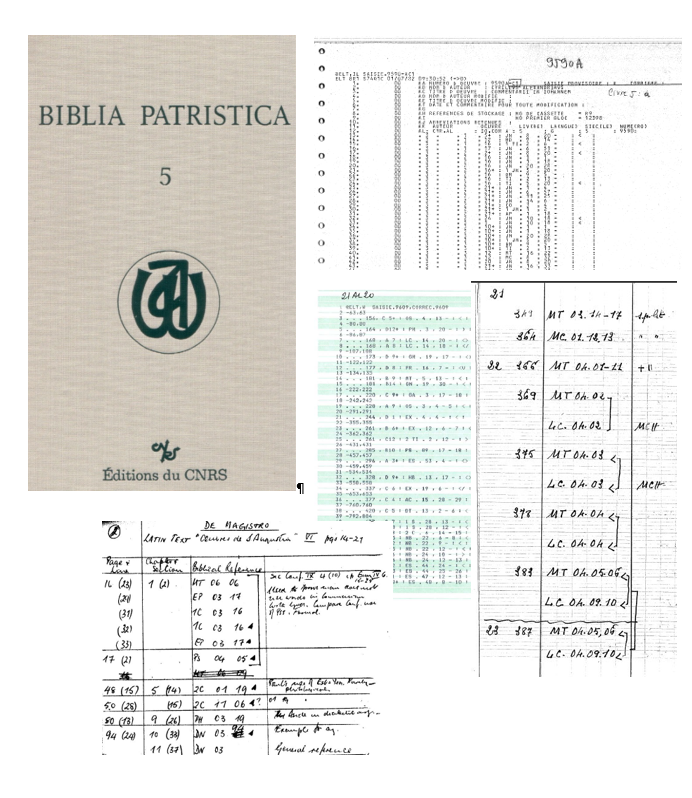Watch a short video presentation
The BiblIndex project is led by Sources Chrétiennes – HiSoMA in Lyon. It is mainly funded by the French National Center for Scientific Research (CNRS), to which most of the team members belong. It has received additional funding from the Rhône-Alpes Region (2006), the French National Research Agency (2011-2015), the Digital Scientific Library (2015-2016), the Association des Amis de Sources Chrétiennes and the Montcheuil Foundation (2018-2020) and from Yves Oltramare (2023). It is currently part of the Equipex Biblissima+ (2022-2029).
BiblIndex aims at building an exhaustive online index of biblical quotations and allusions in early Christian literature, both Western and Eastern texts, which is meant to eventually cover the whole of Late Antiquity and the early Middle Ages. This is not about a binary and one-way connection between a canonical corpus and a corpus of authors quoting verbatim: more precisely, BiblIndex seeks to give a full account of the complex links existing between a corpus of biblical texts – evolving collections of books originally written in various languages and translated early in their history, while still in progress of composition – with a corpus of ancient and medieval authors, who refer to the Bible (while commenting on, meditating on, and translating it) as a fixed entity yet at the same time contribute, through their quotations and spiritual or liturgical reminiscences, to the form and concept of ‘the text’. Quotations from ancient authors show these biblical texts in the process of development and reception. Reassembling this hitherto scattered patrimonial treasure, BiblIndex aims at providing a federative tool – as objective as possible – intended for scholars and researchers, as well as for a wider audience, to help understand the acculturation process of the Bible in both the East and West, and to enhance studies in exegesis and history of the biblical text.
Access to the data is completely free.
At present, BiblIndex consists of a comprehensive inventory of biblical quotations and allusions in early Greek and Latin Christian literature, providing bibliographical information about the edition used for each patristic work; it gives no access to the texts themselves. Each entry on the website offers a series of numbers indicating the chapter and verse of the biblical text, its location in the patristic writing and the corresponding page and line numbers in the reference edition. For example, Genesis 1:27 is quoted in Basilius, Asceticon parvum 2, 44, on page 15, line 10 of CSEL 86 (1986). Links between the Bible and the patristic texts have been found by scholars who have read them carefully and sometimes provided a comment on their selection. This data is merely the first step of BiblIndex.

